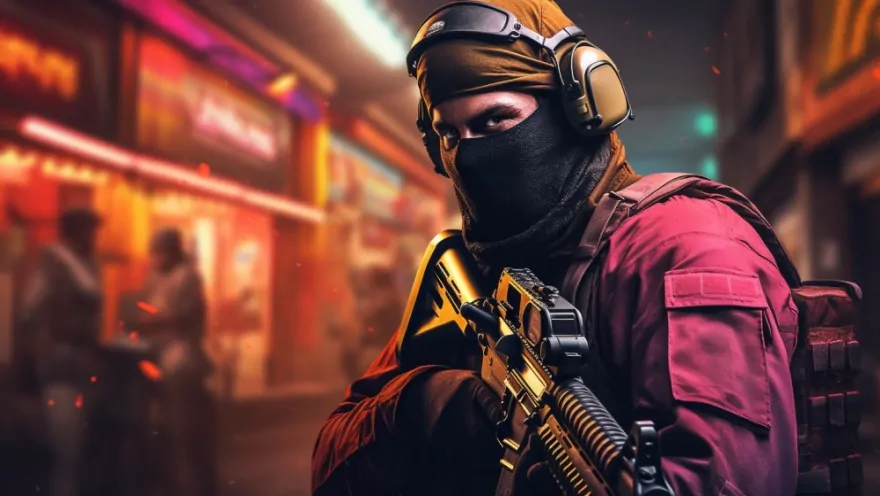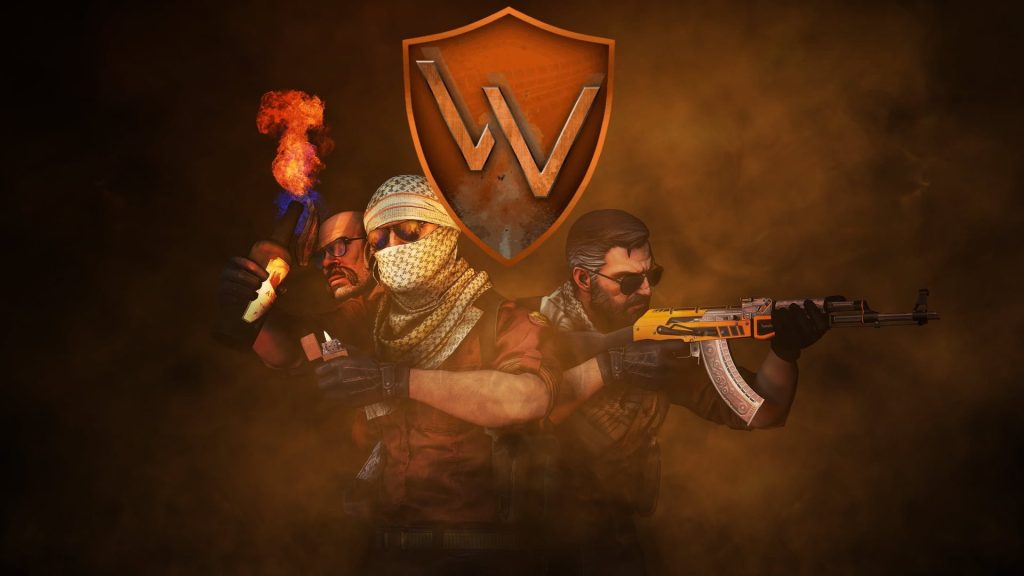At first, it seems that there is little in common between the stressful, fast-paced environment of Counter-Strike and the quiet, slow-paced environment of academic writing. However, these two apparently extreme activities have much in common with one another. Being good at Counter-Strike, a popular first-person shooter game, might well be a useful ability when it comes to writing academic texts. Students can use services like “do my coursework by Academized” to get expert help tailored to their needs. Academized.com writing service is particularly relevant because it offers comprehensive assistance that can further develop the writing skills honed through gaming.This article will look at the unexpected ways that playing Counter-Strike can lead to a student being able to write clear, convincing and interesting academic papers.
The Power of Strategy
In CS you are required to devise and execute multilayer strategies in order to accomplish your aims at the expense of the opposition; this strategic thinking directly translates into academic writing. While composing an essay or research paper, students must devise and articulate a plan, organize their thoughts and arguments in a logical sequence, anticipate counterarguments and prepare their responses – strategic thinking that is honed in CS can help them become more adept at outlining their papers, structuring and presenting their arguments, anticipating counterarguments, and preparing responses.
For instance, in Counter-Strike, when planning a move, players must take into account aspects such as the map layout, the composition of the team, and the resources available to them. Likewise, when writing an academic paper, students must take into account the thesis of the paper, the kind of evidence that supports it, as well as the structure of the paper they’re writing. With each Counter-Strike match, one can hone one’s ability to think ahead several steps at a time, to constantly be on the lookout for unforeseen circumstances and to sensitively adjust to those circumstances as they unfold.
Improved Focus and Concentration
For those looking for further guidance, exploring top coursework services reviewed can provide valuable insights and resources to support their writing journey. To succeed at Counter-Strike, a player must maintain concentration and focus. It requires an athlete’s monitoring of the cues in the environment, split-second reaction to shifting goal situations, and attention to several elements of the game simultaneously. Frequent Counter-Strike play can strengthen the talent for maintaining focus and concentration, a skill vitally needed for tasks involving academic writing.
Writing a thesis-driven, source-based argument-type paper can take considerable mental effort over a long period of time. A student needs to keep a concise argument in mind, ensure that all the relevant sources are used appropriately, and retain a consistent writing style throughout the paper. The focused attention that a Counter-Strike player develops can help the student stay on task, avoid distractions, and maintain a state of flow for the duration of a paper.
Furthermore, the same ability to screen out clutter and concentrate on what really matters in Counter-Strike serves as a valuable asset in academic writing. It helps students identify the main points of their own research, and to choose the most compelling evidence to reinforce their arguments, as well as to weed out extraneous information that would weaken their paper.
Teamwork and Collaboration
Academic writing is often understood as an individual pursuit, but there are actually many types of writing that require collaboration. For example, when working on group projects or soliciting feedback from professors, we often have to work on writing with peers. As well, peer review is an important part of academic writing.
So, while Counter-Strike is a competitive game, it is a team game at heart – people have to communicate, collaborate, coordinate and back up each other to succeed. These are precisely the skills that would benefit academic writing and peer review projects.
For example, the clean on-point communication needed to dominate a team game such as Counter-Strike can be helpful in classrooms – it can help students better give writing workshops in a timely and clear-cut way. The ability to work towards a common goal, harnessed in the thousands of Counter-Strike matches a gamer has played, can also help group writing projects run more smoothly and pleasantly.
Now, let’s include a table that illustrates some of the key skills developed through Counter-Strike and their applications in academic writing:
Counter-Strike Skill | Application in Academic Writing |
|---|---|
Strategic planning | Outlining and structuring papers |
Quick decision-making | Adapting arguments mid-writing |
Team communication | Peer review and collaboration |
Focus and attention | Sustained writing sessions |
Information filtering | Selecting relevant sources |
Adaptability | Revising and editing |
Resource management | Time management in writing |
Objective-oriented | Thesis-driven writing |
Time Management and Deadlines
Time factors into counter-striking: tasks, like defusing a bomb, need to be finished within a certain time limit, and players have to manage their resources in order to not run out of ammunition or spend too much time on a task that will be difficult to complete before time runs out. These components of counter-striking can enhance a player’s time management skills – a skill that can certainly help in academic writing.
Many academic papers have multiple deadlines that must be met, including both research and writing periods in which other commitments must be juggled. The sense of urgency and time awareness developed from playing Counter-Strike can enhance students’ ability to work efficiently because they may be better prepared to set and adhere to writing goals, allocate time to their writing within a broader timeline of other commitments, and meet deadlines without sacrificing the quality of their writing.
Moreover, pressure – that ability to deliver when in the spotlight – can be valuable when, as in any high-pressure Counter-Strike match, paper deadlines loom perilously close. Behind the scenes, students used to making smart and rapid decisions when the stakes are high could continue to hold their nerve when they are up against it, when rushing to meet a looming deadline on a piece of work.
Attention to Detail
Because, like many other real-time tactical shooters, Counter-Strike players are often rewarded for being able to see, hear and react to tiny details – the echo of a footstep, a flash of movement across the map, or a change in the game environment that may affect your team’s coordinated strategy. It’s not hard to imagine how all this might make for tighter, more polished academic prose.
For example, in academic writing, spotting typos and grammatical mistakes, as well as making sure the references and quotations are formatted correctly, is important. Being used to fine observation in Counter-Strike could help students improve their writing in this way – perhaps they will spot small inconsistencies in an argument or notices areas where more evidence is needed, or a minor error in punctuation.
Added to this ought to be the transfer of attentional skills, so that students become more aware of the intricacies in linguistic and argumentative shadings that are usually invisible in academic discourses. They may become more sensitive to nuance in the choice of words, more responsive to the rhythm that is affected by the way that phrases are linked to make sentences, or more aware of how tiny changes in their writing can create big differences.
Critical Thinking and Analysis
Players of Counter-Strike are also forced to make sense of complicated, fast-moving situations, and respond based on limited knowledge, a skill that might transfer to academic writing quite literally – after all, a good writer in academia requires exactly these critical thinking skills: the ability to think through sources, arguments and evidence.
When it comes to academic writing, the critical question arises of which sources to use, and to what degree one can rely on them. Players of Counter-Strike must continuously reconsider the validity of their sources in-game in order to win, questioning both the reliability of the information and the motivations of those providing it. This can enhance a student’s skill in bringing a critical mode of thinking to their own research, and in turn their writing.
In addition, the practice of regularly reviewing past matches in Counter-Strike – from reviewing strategies, spotting mistakes and planning to improve them – parallels the act of revision in academic writing. Students who are used to this kind of reflective and analytical practice might end up finding it easier to critically interrogate their writing, spot mistakes and plan revisions.
Creativity and Problem-Solving
True, Counter-Strike has its own rules and objectives, but success demands that players think creatively and solve problems in novel ways. They must be prepared to think up new strategies, improvise and innovate as the situation changes, and find alternate methods to overcome difficulties. All of this creative problem-solving could be equally helpful in academic writing.
The creative thinking developed by Counter-Strike can help students create new, original arguments, explore new perspectives on highly studied topics, and present ideas in interesting ways.
Also, the teamwork and problem-solving abilities students strengthen through Counter-Strike are especially important when they write. Whether it’s how to make an introduction that knits a bunch of disparate facts together, how to restructure a paper that just isn’t working, or how to come up with a different approach to a topic they’ve already exhausted, gamers have honed a set of creative and persevering problem-solving habits that should lead to more interesting and effective academic writing.
Resilience and Persistence
While it’s not always easy, and can be infuriating at times (many CS matches end in defeat), playing Counter-Strike means facing down challenges, difficult opponents and persevering through reams of setback before tasting success, and that can help foster the resilience and persistence necessary to produce academic writing.
Writing, whether in a scholarly context or otherwise, can be a challenging and disheartening experience. Students might experience a bout of writer’s block, receive an unkind evaluation from a teacher or adviser, or need to abandon several hours of work to start over. The grit that Counter-Strike cultivates can allow students to approach writing challenges with a sunny optimism and to keep trying when something isn’t working.
The mindset that this game requires – the willingness to try and fail, to avoid making the same mistake twice, to listen to my teammates and adopt their successful strategies, to keep trying when the world is spiraling madly around me and I’m starting to feel disoriented and disheartened – is exactly what I need to apply to writing. It can help students keep working on a 18th draft, respond in a constructive way to feedback, keep trying despite all the mocking and judgment.
Perhaps it seems like Counter-Strike and academic writing have nothing to do with each other. But as it turns out, they cultivate many of the same skills. The strategic thinking, focus, teamwork, time management, attention to detail, analytical thinking, creativity and persistence cultivated through Counter-Strike can also lead to more effective academic writing.

